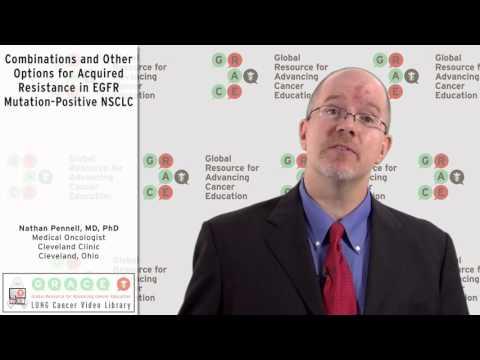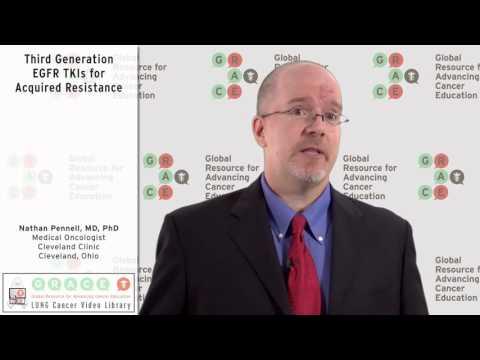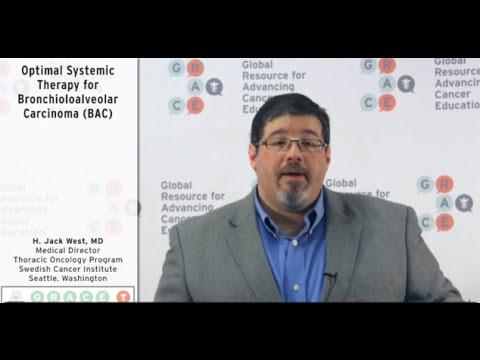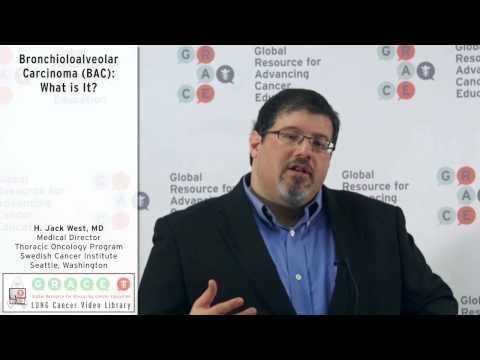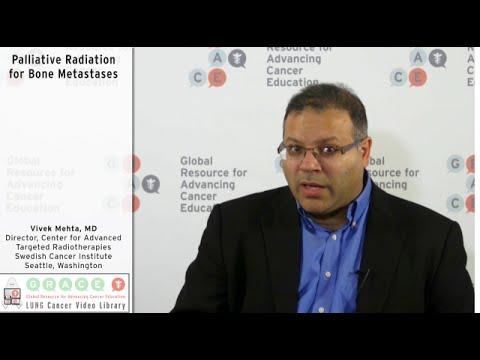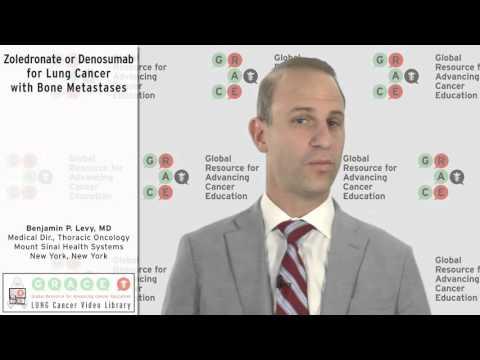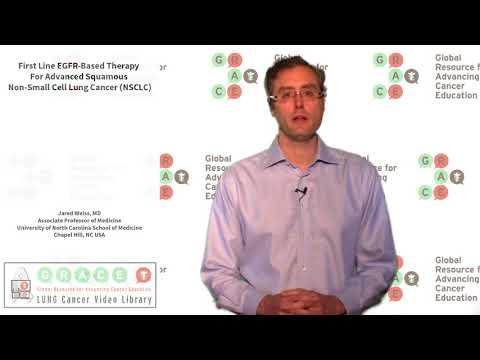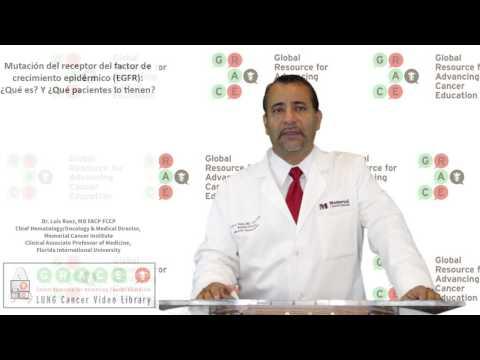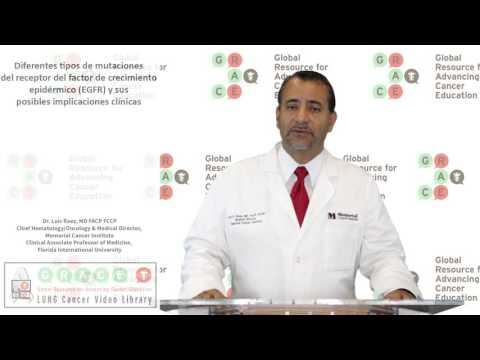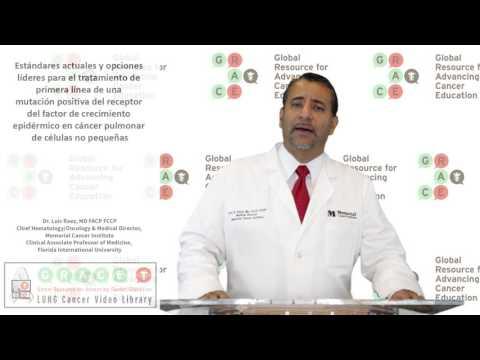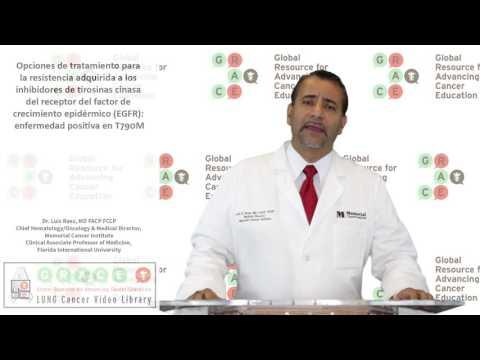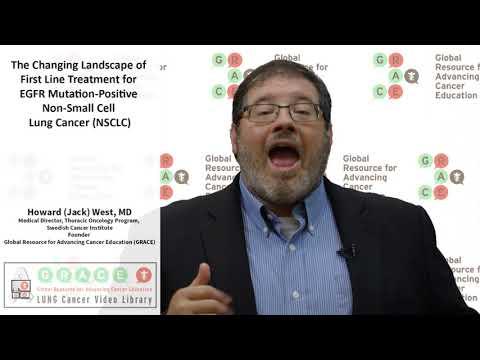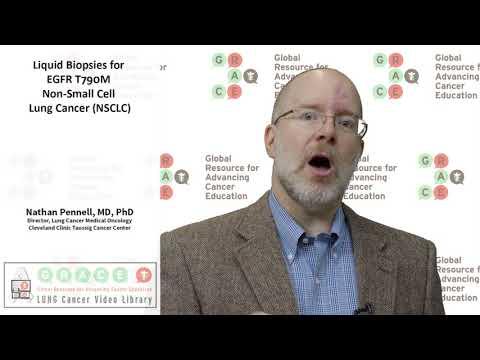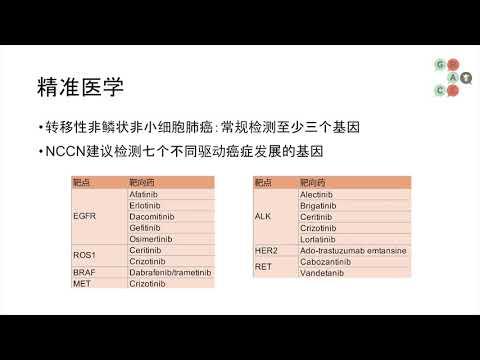Dr. Nathan Pennell, Cleveland Clinic, describes other options for treatment of acquired resistance, including chemotherapy, ablation with SBRT and a combination of Gilotrif and Erbitux.
Video Library
Search the Video Library
Video Language
Filter by Cancer Type:
Displaying Results 1 - 15 of 27
Please Note: New Treatments Have Emerged Since this Original Post
Dr. Nathan Pennell, Cleveland Clinic, discusses the concept of acquired resistance and new agents designed to address it, including Rociletinib and Merelitinib.
Bronchioloalveolar carcinoma (BAC) is an unusual subtype of lung cancer; medical oncologist Dr. Jack West reviews the evidence on the best systemic therapy to treat advanced, multifocal BAC.
Bronchioloalveolar carcinoma (BAC), also known as adenocarcinoma in situ, is an unusual subtype of lung cancer with its own appearance under a microscope and on imaging. Dr. Jack West introduces some of the basics of the unique features of BAC. Download PDF Transcript Transcript One of the unusual
Unfortunately, there is as much misinformation as good information about the unusual subtype of lung cancer known as bronchioloalveolar carcinoma (BAC) or adenocarcinoma in situ. Dr. Jack West reviews the top 5 myths. Download PDF Transcript Transcript One of the unusual subtypes of lung cancer is
Radiation therapy can be very helpful in treating painful bone metastases or those at risk for causing a fracture due to compromise of bone strength. Dr. Vivek Mehta reviews the basics of this approach. Please feel free to offer comments and raise questions in our Discussion Forums. Transcript
Transcript One of the important points about patients with advanced lung cancer is that 30-40% of patients will develop bone metastases. I think it’s important to recognize this is not bone cancer, this is lung cancer that’s moved to the bone, and in 30-40% of patients at some point who have
Dr. Jared Weiss, Vice President of GRACE and Associate Professor at UNC-Chapel Hill in Clinical Research, and the Thoracic Oncology Program at UNC Lineberger, discusses First Line EGFR-Based Therapy For Advanced Squamous Non-Small Cell Lung Cancer (NSCLC).
Dr. Luis Raez, MD FACP FCCP, Chief of Hem/Onc and Med. Dir. at Memorial Cancer Institute, and Clinical Associate Prof. of Medicine at FL International University joined GRACE to discuss EGFR mutation: what is it, and which patients have it?
Dr. Luis Raez, MD FACP FCCP, Chief of Hem/Onc and Med. Dir. at Memorial Cancer Institute, and Clinical Associate Prof. of Medicine at FL International University joined GRACE to discuss different types of EGFR mutations and their potential clinical implications.
Dr. Luis Raez, MD FACP FCCP, Chief of Hem/Onc and Med. Dir. at Memorial Cancer Institute, and Clinical Associate Prof. of Medicine at FL International University discusses current standards and options for first-line treatment of EGFR mutation-positive NSCLC.
Dr. Luis Raez, MD FACP FCCP, Chief of Hem/Onc and Med. Dir. at Memorial Cancer Institute, and Clinical Associate Prof. of Medicine at FL International University discusses treatment options for acquired resistance to EGFR TKIs: T790M-positive disease.
Jack West, MD, President and CEO of GRACE provides updates to our Lung Cancer Video Library. In this recent video, Dr. West discusses the changing landscape of first-line treatment for EGFR mutation-positive non-small cell lung cancer (NSCLC).
Nathan Pennell, MD, PhD , Director of Lung Cancer Medical Oncology at the Cleveland Clinic Taussig Cancer Center in Cleveland Ohio discusses liquid biopsies for EGFR T790 non-small cell lung cancer (NSCLC). We would like to thank the following companies for their support of this program
For our Mandarin speaking community, Jenny J. Li, MD, Hematology/Oncology Fellow at the Mayo Clinic in Rochester MN, offers translated updates to our Lung Cancer Video Library. In this video translation, Dr. Li discusses evolving standards for molecular testing in advanced NSCLC. We would like to

